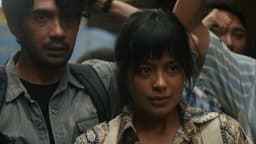Home / Arts and Entertainment / Acclaimed Director Peter Chan Reflects on Hong Kong Cinema's Rise and Fall
Acclaimed Director Peter Chan Reflects on Hong Kong Cinema's Rise and Fall
2 Nov, 2025
Summary
- Filmmaker Peter Chan returns to Tokyo Film Festival after nearly 3 decades
- Discusses his independent filmmaking days with UFO group and Hong Kong cinema's decline
- Adapted to market demands, now focuses on large-scale Chinese productions

Acclaimed filmmaker Peter Chan Ho-sun recently returned to the Tokyo International Film Festival, nearly three decades after his independent UFO films captivated audiences in the city. In a reflective discussion, Chan traced his cinematic journey, from his early days as an independent-minded Hong Kong director to his current focus on large-scale productions in mainland China.
During the 1990s, Chan co-founded the UFO group with like-minded filmmakers who felt out of place in Hong Kong's action-comedy dominated industry. This period, which Chan describes as "the best days" of his life, saw him direct acclaimed films like "He Ain't Heavy, He's My Father" and "He's a Woman, She's a Man." However, this creative freedom coincided with the actual decline of Hong Kong cinema, as the collapse of the crucial Taiwanese market proved catastrophic.
After UFO's dissolution, Chan navigated multiple detours, including a stint in Hollywood, before settling into mainland Chinese production. He has since adapted to the market's demands, directing period epics, martial arts films, and his latest project, "She Has No Name," which explores a famous unsolved 1940s murder case in Shanghai.
Despite the challenges, Chan remains committed to crafting compelling stories that resonate with audiences. His films, such as the structurally unconventional "Dearest," have earned critical acclaim, while his ability to navigate co-productions has allowed him to forge a diverse and influential career.




